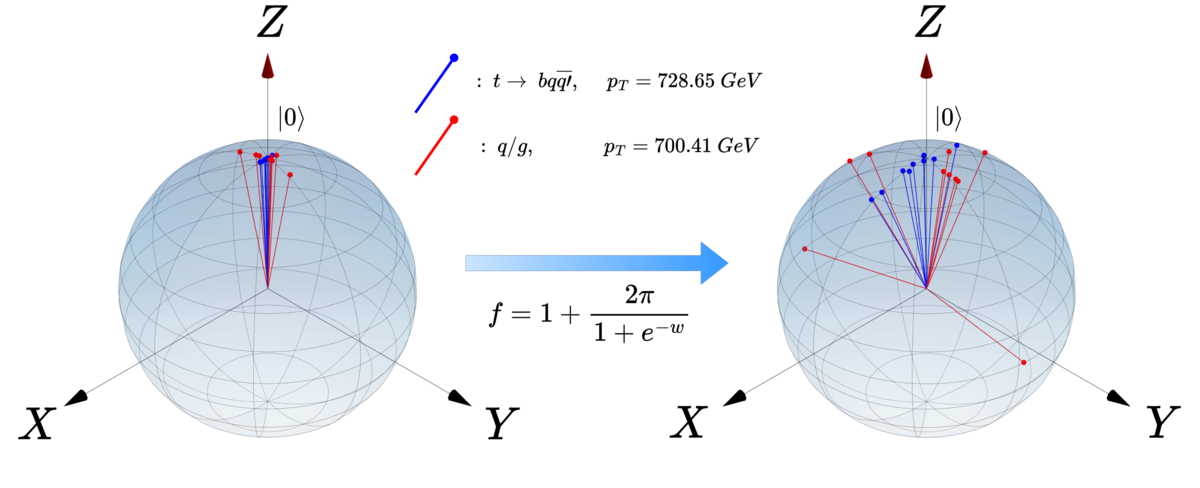Machine Learning on Quantum Computers enhances High-Energy Physics Analysis
Researchers at the ETP, along with collaborators from Imperial College London and Durham University have introduced 1P1Q, a new quantum data encoding scheme tailored for high-energy physics (HEP). Unlike conventional approaches that rely on classical data compression, 1P1Q encodes the kinematics of each particle directly onto an individual two-state quantum system, a so-called qubit, enabling quantum algorithms to represent complex collision events and without loss of information. The method was demonstrated successfully on two quantum machine learning applications: a Quantum Autoencoder (QAE) for unsupervised anomaly detection, and a Variational Quantum Classifier (VQC) designed for supervised jet classification.
In tests, the QAE effectively distinguished signal jets from background QCD jets, outperforming classical autoencoders while utilizing far fewer trainable parameters. Similarly, the VQC achieved competitive results, achieving performance comparable to state-of-the-art classical models but with significantly reduced complexity. The research team further validated the anomaly detection algorithm using real collision data from the CMS detector at the LHC, recorded in 2016, confirming the robustness and practicality of quantum techniques even in real world situations. These results highlight the promise of quantum encoding schemes like 1P1Q for advancing collider data analysis, opening avenues for integrating quantum computing and machine learning techniques in
experimental physics workflows.
The study was performed by the research group of Prof. Dr. Markus Klute at KIT, particularly PhD candidate Aritra Bal, in collaboration with Dr. Benedikt Maier, Melik Oughton and Eric Pezone from Imperial College London, and Prof. Michael Spannowsky from Durham University.
The results are available as a preprint.
Contact: Prof. Dr. Markus Klute


